Polycystic Ovary Syndrome (PCOS) is a frequently diagnosed endocrine condition in women, affecting approximately 400,000 Australian women. Most women with PCOS need prolonged treatment. Present pharmaceuticals can be effective in treating signs and symptoms, but have adverse affects. Because of this, research into Traditional Chinese Medicine (TCM) and its effectiveness on treating women with PCOS is invaluable and discussed in this article.
Polycystic Ovary Syndrome (PCOS)
PCOS is a condition that is associated with anovulation or oligo-ovulation, menstrual irregularities and amenorrhea, infertility and insulin resistance. Often there is the presence of male-pattern hair growth (hirsutism), acne and weight gain. The difference between Polycystic Ovaries (PCO) alone and PCOS is that the hormone levels may be normal in PCO as opposed to PCOS, where there are hormonal abnormalities.
Treatment with Western Medicine
Treatment with Western medicine is addressing the signs and symptoms, aiming to reverse the effects of excess androgen, regulate menstruation, restore fertility and improve any endocrine or/and metabolic imbalance associated with PCOS. Women with PCOS have a greater incidence of both type 2 diabetes and cardiovascular disease, independently of being overweight, yet exacerbated by obesity. The recommended diet is a typical diabetes diet that consists of foods with a low glycaemic-index, lean protein and complex carbohydrates. Regular exercise is just as important to help manage the syndrome.
Treatment with Traditional Chinese Medicine
Due to the fact that it is a lifelong treatment and that there are numerous adverse side effects involved with pharmaceuticals, Chinese herbs and acupuncture have shown to be an effective alternative treatment to Western medication. Even for patients who decide to be taking conventional medication, Traditional Chinese medicine (TCM) can be beneficial to the overall health, strengthen the systems that have been weakened through the drugs and moderate the side effects.
In Tradition Chinese Medicine enlarged ovaries are seen as water accumulation in the pelvic cavity, where it transforms into phlegm, due to Kidney Yang deficiency (translates into low progesterone levels). The Kidney deficiency is also responsible for anovulation, amenorrhea or infertility, according to contemporary observations. Ovarian cysts are caused by Damp/Phlegm in the lower abdomen.
In other words: Acupuncture Chinese medicine and a healthy lifestyle can help regulate hormone levels and establish a healthy menstrual cycle, which is the foundation for fertility and good health.

